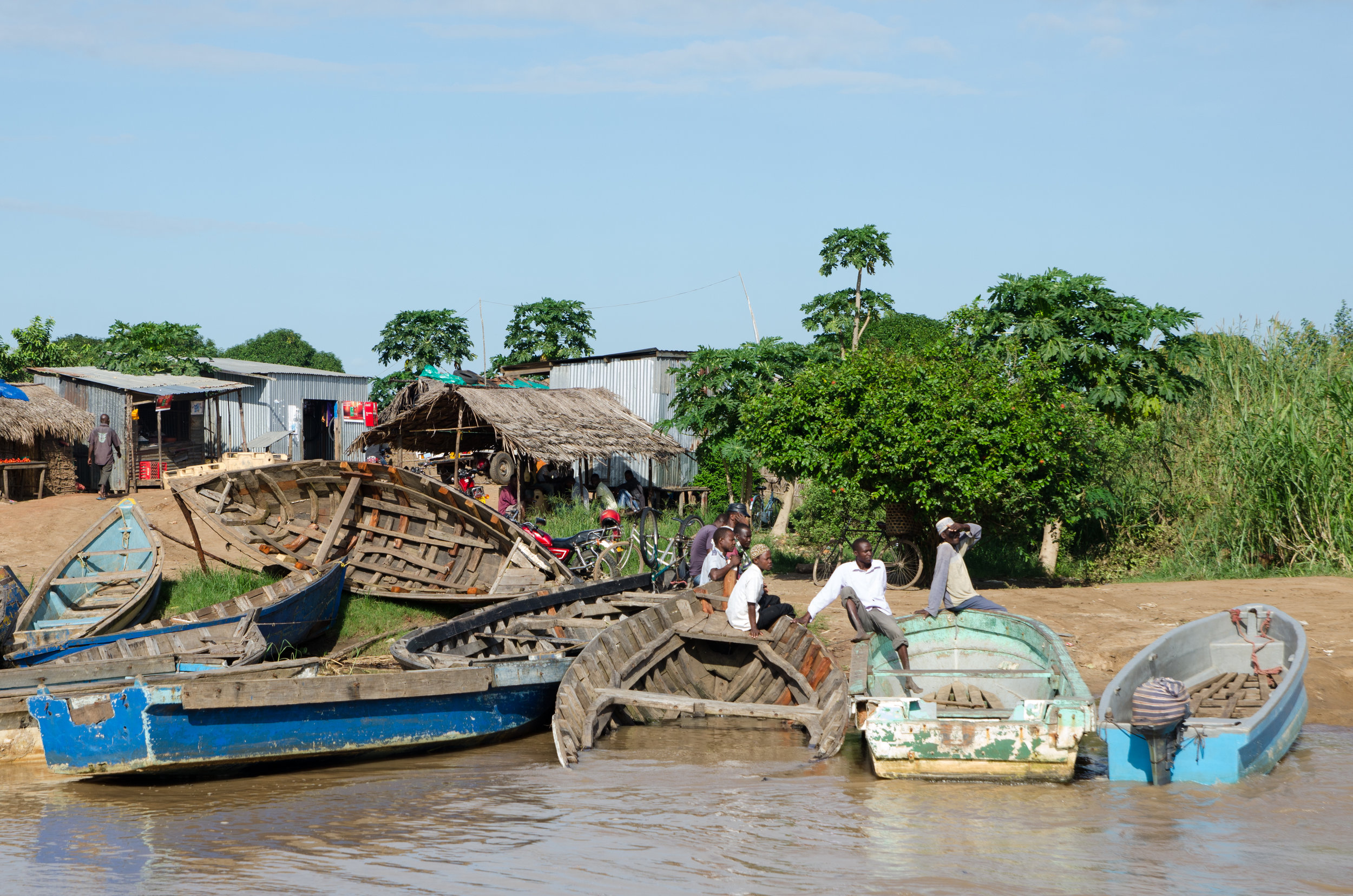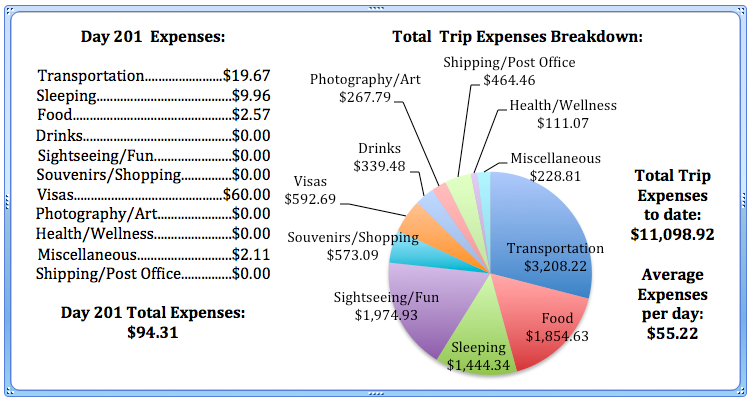We were outside, bags packed by five in the morning, waiting for our tuk-tuk (in Mozambique this is called a bajaj) to pick us up to take us to the earliest dala-dala to the border. He was late. The ferry left at eight. There was only one ferry per day for the Kilambo border crossing. If we missed it, we would have to take our chances taking a dug-out canoe across the river and hope that the canoe ‘captain’ wouldn’t try to extort money from us – or the canoe would tip over in the middle of the crocodile infested waters.


By twenty after five, he arrived, and we were cruising down the highway into Mtwara. Once in town, we passed a group of forty or so high school boys running together. It was barely dawn and they consumed the road. Some, not even wearing any shoes, but all maintaining a decent speed that made me envy their willpower to get up so early and athleticism that I’ve forgotten once this trip started. Andrew and I exchanged smiles and I cursed the fact that my camera was buried in my daypack.
The dala-dala ride wasn’t terribly long and we arrived at the Tanzanian customs around seven. We started standing in line for passport control by quarter after. At first we thought it was perfect timing, and then we realized the line was not moving. By quarter till eight, I started mentally preparing how I would fight off a crocodile simultaneous to negotiating a lower fee across the rest of the river. Luckily, our entire dala-dala was heading across the river as well, and the ferry waited for one last load before crossing.
I heaved a sigh of relief as we scooted past the dugout canoes and onto the sturdy looking ferry. I sighed again when one of the men shouted something out, pointing to the water.
“Crocodile?” I asked slapping my arms together, in my best croc impression. He nodded yes and we exchanged big, scary eyes at each other. A young man came up to chat halfway across the river. He kept telling me about his ‘husband.’
“You mean wife. Wife is for a woman. Husband is for a man.” I said, pointing back and forth between me and Andrew to try to distinguish the difference.
“Yes.” He seemed to agree, and then…
“My husband’s name is…” He started to tell me. He pulled his phone out of his pocket and held it up for me to see, asking:
“Do you like this?” It was a picture of a girl, topless on his phone. I started laughing, wondering why on earth he would think it a good idea to show a nudie picture to a stranger, let alone a ‘mizungu.’
“Is that your husband?” I asked thinking there was no sense confusing him with the term ‘wife’.
“No… My friend.” He replied.
“Ohhh really? Does your husband know about your friend?” I teased. He shook his head and then asked if he could help me with my bags to the bus. I declined, insisting I was very strong and could do it myself. This didn’t make him very happy, and he seemed genuinely worried about not being able to help me get to the bus, let alone a seat on the bus.
“Really, I am ok, I can do it.” I assured him as Andrew stood a little ways away with our other bigger backpacks.
Then I was told to hold on, as the ferry was going to simply crash into the riverbank. I saw only one dala-dala and two pickup trucks standing by. There were at least fifty, probably more on the ferry. Everyone was inching forward, ready, as if preparing for a race. The ferry shook as it bumped into the riverbank and then everyone was running.
I ran. With the two smaller backpacks, I ran straight to the dala-dala, ignoring the men calling me to the pick-up.
“No thank you! I want to sit down!” I yelled back towards the pick-up truck as I pushed my way onto the dala-dala, no clue where Andrew was in the shuffle. The money collector on the dala-dala saw me and started yelling at a young male passenger to move for the ‘mizungu.’ I had stopped to see if there was room for two, not to steal someone else’s seat because I was a white girl. I shook my head and told him to stay while I went further back in the van to find an empty seat. Another passenger told me to sit down in an empty seat by a window just as I saw Andrew hoist our big backpacks onto the top of the van. He climbed in and after helping lift an older tribal (face tattoos and all) woman up over one seat, we were able to score seats next to each other and were soon dropped off outside of the Mozambique passport control.
After washing our hands with a chemical/water mixture to prevent cholera, we stood in line outside of the building for what felt like days. The tribal woman clapped me on the back and smiled at me several times as we waited. When we got inside and I handed my passport over to the Mozambican authority, I saw what the wait was all about. It must have been his first day in front of a computer. It took roughly ten minutes for him to process my passport.
Once we were both cleared, two guards at the next counter inspected our bags. Everything was unzipped and examined.
“What?” One of the officers held up my unmarked box of vitamins.
“Vitamins.” I declared.
“For what?” He asked, pointing to his head, his stomach…”
“Um, just… vitamins… for…” I replied making a circle around my whole body. The officers exchanged dubious looks. They asked again what the pills were and why I had them. Both Andrew and I repeated “vitamins” several times, trying to explain “for general health” to them. Finally, they gave up and handed them back.
Thank God they didn’t dig deep enough and unzip my First Aid kit. That would have been a nightmare!
We waited for another hour for everyone else to get through customs before the dala-dala honked its horn signaling it was time to load up and go. Only we didn’t go. We waited another hour in the running van, in the sun, before we started the four-hour drive to Mocimboa da Praia.
We arrived in town an hour before dusk, and asked to be dropped off at the bus to Pemba. It was then we discovered that Andrew’s leg was swollen, but also that the bus to Pemba left at three o’clock in the morning.
“In nine hours?” I tried to verify.
The driver agreed. We sat down on the side of the dirt road and I busted out my First Aid kit. Andrew scraped away what now looked like an infection over the cut on his leg (he stopped me from doing it because he said I was too gentle) and I cleaned it out with an alcohol wipe and bandaged it up in front of a young audience of elementary school boys curious what we were up to.
We walked through town – two dirt roads that were lined with little shops. Eventually, we found a guesthouse of sorts, in the form of several private huts that offered electricity and a mosquito net, but no running water. I balked at the price. $20.00 for this? I thought surely there was a misunderstanding, but it was better than sleeping on the bus before an eight hour bus ride leaving at three in the morning. We tried to get a discount, but we were challenged for the first time on this trip dealing with a language barrier so great that numbers of time were confused with numbers of days that were confused with numbers of money… We gave up and dropped our bags before going into town to try to exchange money and find something to eat.
Dinner consisted of an order ofchips mayai (French fries cooked in an omlet and then slid into a plastic bag) for me, bread rolls for Andrew, and strawberry soft serve ice-cream for us both. That is all we could find on the street to eat. This two-dirt-road town offered no restaurants, no grocery stores, and no sign of other travelers having ever walked through town. We were quite the spectacle.
Sometimes I worry that I’m one of those girls who thinks she is low-maintenance, but really is super high-maintenance. (They are the worst, am I right?) It was tonight, as I attempted to shower by way of sloshing brown water from a bucket over me, that I realized I cannot high-maintenance at all. Despite all of my dreams of my clothes, shoes, scented lotion and even expensive make-up waiting patiently for my return, one could not take a shower in the conditions I have on this trip and still be considered high-maintenance.
“That was refreshing!” I said, climbing under the mosquito net into bed. Andrew eyed me suspiciously.
“Well, it was brown, but there was soap and it was better than nothing…” I said. Soon after, he picked the damp scarf I used to dry off and went in pursuit of cleanliness.

